Filter by
Publications (84)
RSS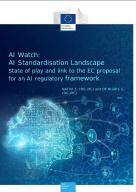
The present study surveys the ongoing standardization activities on AI carried out by ESOs (European Standards Organizations) and international Standards Development Organizations (SDOs).

This report presents the main conclusions that emerged from the conference, “What future for European Robotics?”, that brought together specialists from industry, academia and policy.
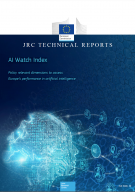
The AI Watch Index presented in this report provides a structured set of indicators to understand the performance and positioning of the EU in artificial intelligence (AI), in quantitative terms.
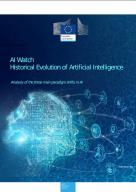
This report summarizes the evolution of AI, it introduces the “seasons” of AI development (i.e. winters for the decline and springs for the growth), describes the current rise of interest in AI, and concludes with the uncertainty on the future of AI.
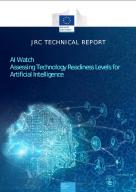
This document describes an exemplar-based methodology to categorise and assess several AI research and development technologies, by mapping them into Technology Readiness Levels (TRL) (e.g., maturity and availability levels).
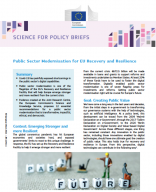
Modernising the public sector with the help of digital technologies can help Europe emerge stronger and more resilient from the current crisis. Our research identified 12 recommendations for how policy makers, public sector managers, and civil servants can help make this a reality.
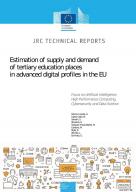
This study estimates the supply and demand of university places for studies covering the technological domains of Artificial Intelligence (AI), High Performance Computing (HPC), Cybersecurity (CS) and Data Science (DS), in the EU27, United Kingdom and Norway.
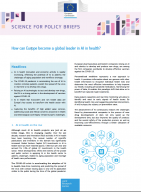
This policy brief addresses the question of what it takes for Europe to become a global leader in AI in health.
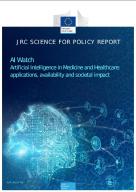
This report reviews and classifies the current and near-future applications of Artificial Intelligence (AI) in Medicine and Healthcare according to their ethical and societal impact and the availability level of the various technological implementations.
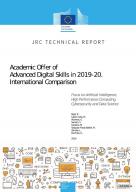
The Academic offer of advanced digital skills report provides the number and characteristics of education programmes on advanced digital skills provided in the EU27 and six additional countries: The United Kingdom, Norway, and Switzerland in Europe, Canada and United States in America, and Australia
